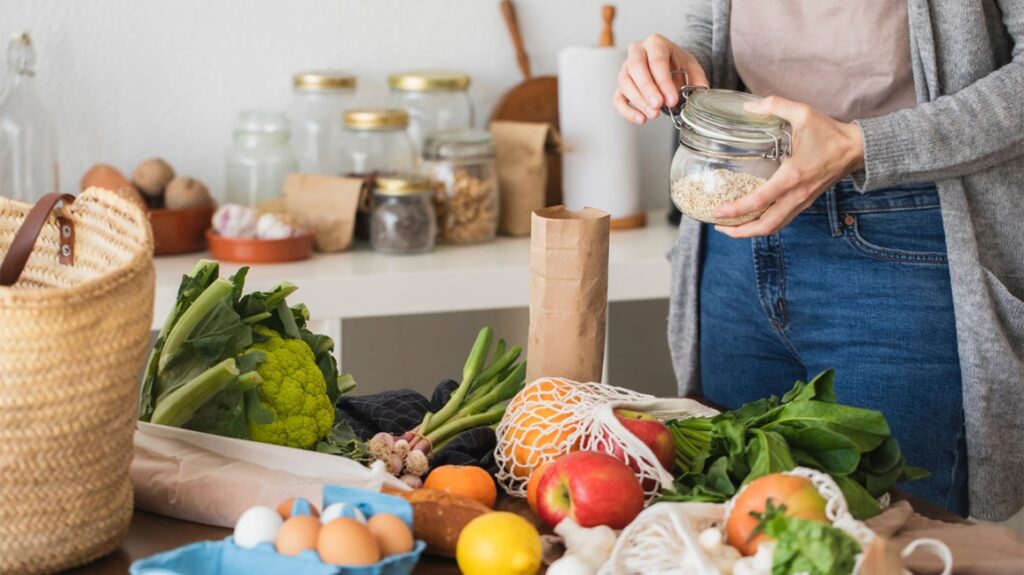Meal planning can be a daunting task, but with these tips, it can become a quick and easy habit that saves time and money. Start by taking inventory of your kitchen to know what ingredients you already have before planning your meals. Choose a specific day each week to plan out your meals and make a grocery list. Consider seasonal produce, meal prep in advance and batch cooking to streamline meal prep during busy weeknights. Get creative with leftovers and stick to a consistent routine for meal planning to become a habit. Overall, mastering meal planning saves time, money, and prevents food waste.
How to Master Meal Planning: Tips for Organizing Your Kitchen & Streamlining Your Shopping
If you feel like you’re always scrambling to figure out what to eat for dinner each night, or you’re tired of constantly overspending on groceries and letting food go to waste, it’s time to start mastering meal planning.
Meal planning might sound intimidating or time-consuming, but with a few simple tips and tricks, it can become a quick and easy habit that saves you both time and money.
1. Take Inventory of Your Kitchen
Before you start planning your meals, take a thorough inventory of your kitchen. This way, you’ll know exactly what ingredients you already have on hand and can plan your meals accordingly. This will not only save you money by avoiding unnecessary purchases but will also prevent food waste.
2. Plan Your Meals Ahead of Time
Pick a specific day each week to plan out your meals for the following week. Write down what you’ll be eating for breakfast, lunch, and dinner each day, and make sure to include snacks if necessary. This will help you avoid those last-minute trips to the grocery store to grab ingredients for dinner.
3. Make a Grocery List
Once you have your meals planned out, make a grocery list of everything you’ll need to buy. Stick to your list when you’re at the store, and try to only buy what’s on your list. This will save you money and prevent unnecessary purchases; for example, you may buy bread, cheese and butter, and then realize you could have made something else with that money, like buy fruits, which are healthful and recommended.
4. Consider Seasonal Produce
Incorporating seasonal produce into your meals can save you money, as it’s usually cheaper than out-of-season produce. Additionally, seasonal produce is often fresher and more nutritious as well. Plan your meals around what produce is currently in season, and you’ll likely notice a difference in both taste and cost.
5. Meal Prep in Advance
Prepping ingredients ahead of time can help streamline meal prep during busy weeknights. For example, chop up vegetables, cook grains or proteins, and store everything in separate containers in the fridge. Then, when it’s time to make dinner, all you’ll have to do is assemble everything.
6. Consider Batch Cooking
Consider batch cooking, where you cook large quantities of food at one time, and then store the leftovers in the fridge or freezer for future meals. This is especially useful for busy weeknights when you don’t have time to cook a full meal from scratch. Batch cooking is also great for making staples like chicken stock, which can be used in many recipes.
7. Get Creative with Leftovers
If you do have leftovers from previous meals, get creative with how you use them. For example, use leftover roasted chicken in a salad or wrap, or turn leftover vegetables into a soup or stir-fry.
8. Consistency is Key
Meal planning doesn’t have to be complicated, but it does take consistency to stick with it. Set aside a specific time each week to plan your meals and make your grocery list, and try to stick with it. Once meal planning becomes a habit, it’ll become second nature, and you’ll wonder how you ever went without it.
In conclusion, mastering meal planning is an excellent way to save time, money, and prevent food waste. By taking inventory of your kitchen, planning your meals ahead of time, making a grocery list, considering seasonal produce, meal prepping in advance, batch cooking, getting creative with leftovers, and sticking to a consistent routine, you’ll be well on your way to becoming a meal planning pro.
